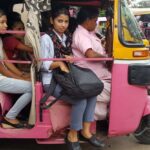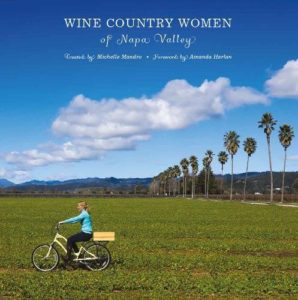
Girldrive: Criss-Crossing America, Redefining Feminism, by Nona Willis Aronowitz and Emma Bee Bernstein, Paperback, 221 Pages, Seal Press. $19.95
Women are on the move, but not taking to the streets as they did in early and mid-to late 20th century. The millennium is a new chapter in feminism where the bit battled movement from an ongoing backlash and war on women waged by radical conservatives continues to be elusive and unrecognizable not making it to the women who need it the most.
In the new century, the Feminist Movement in the Western world is a bit battled from an ongoing backlash and war on women waged by radical conservatives. Feminism remains elusive as theory is disconnected from millions of women’s daily life and sexism has become like a virus with many strains therefore harder to identify and name. Possibly the worse infection afflicting the movement is the simple fact that in this highly connected and communicating world, women are fractured and have stopped communicating across the fence.
The only cure is for women to talk with each other.
Desiring connection, not only with their own generation of feminist, but with the generations before them, Nona Willis Aronowitz, an editor and journalist, and the late Emma Bee Bernstein, who was an artists, set out onto American back roads and highways interviewing self-identified feminists and women from diverse backgrounds.
The result was their wildly popular blog about their journey from New York City to California and back across the country stopping along the way to talk to women that became the book, Girldrive: Criss-Crossing America, Redefining Feminism.
Girldrive is a creative collection of vignettes of three generations of women in the early 21st century from diverse backgrounds discussing what it is like to be female in the United States, independence, and the “F-word” laced with their personal journey.
Each snapshot of the women interviewed is encapsulated in a scrapbook of the girl’s journey with their personal observations and adventures.
It’s disheartening how little has changed in a generation. Feminism continues to be under attack and has retreated into the ivory tower making it a distant and unrelateable to women. It’s apparent by the number of women the girls interviewed who declined to identify as feminist and weren’t quite sure of themselves discussing issues that matter to them and women in general.
Early on, in their travels the Emma and Nona realized that describing their adventure as a conversation about feminist wasn’t going to get them very far. Feminism raises suspicion in people and they discovered a gulf has developed between academia and people’s “personal experience.” Simply having conversations with women, where feminism was only one of the conversations, help the young women do what they aimed to do, which was to cross boarders leaving their familiar relationships behind in the name of understanding. The change opened doors allowing the girls to cross over thresholds into other worlds, such as Christian and conservative to ethnic and working-class, that they wouldn’t have had otherwise experienced and enriched their project.
Emma and Nona also found that many women and men define feminism or declare their brand of woman independence in a way that fits into their beliefs, values, and daily lives.
Rachel and Lauren, as they are only identified in the book in the Memphis section, are an example of how religious women balance their faith with their modern beliefs. Neither woman identify as feminists.
“It’s a very quiet factor, but I treasure it,” Rachel tells Emma and Nona in Girldrive, about her faith. She identifies as pro-choice and attends a liberal church rather than the strict Christianity that she was raised, but gets excited when she meets other women artists of faith.
Lauren, a midwifery master’s student volunteers at a Crisis Pregnancy Center, is much more religious and identifies as pro-life, but she told the authors that she doesn’t believe in abstinence-only education, because “it’s not a reality. Girls need to know about STDs and pregnancy.”
At the other end of the spectrum, Nathan, a trans man in Philadelphia, openly identifies as a feminist.
“My understanding of feminism is for both sexes to be equal – in ability, capacity, rights, everything,” he told the authors, stating that changing his gender didn’t take away from his feminist beliefs.
He actually feels empowered to educate other men by expressing his, “feminist ideals covertly” when he is privy to misogynist conversations, “I think it helps when guys hear it coming from guys.”
Feminism needs a good public relations representative because women are muddled about what feminism actually is because between the two ends of the banks is a river of issues related to gender that women continue to sometimes blindly navigate. Labeled, tagged, or not women need feminism, Nona discovered at the end of the journey.
Emma and Nona, born and raised New York feminists, couldn’t forsake the word “feminism,” because it was a “call to collective action and a way to “ignite an everyday gender consciousness,” Nona writes.
Feminism needs to be accessible because it is essential for women’s lives.
“Destigmatizing feminism is essential in less tangible way: Not only does it make young women cognizant of issues relating to gender equality and justice, but it also encourages them to consistently talk about these issues,” writes Nona.
The bottom line is the more women talk – which women like to do – the more they can understand their experiences as women in the U.S. Therefore they can make more informed decisions about their lives – socially, politically, and economically – and how they relate politically and to the people in their lives, surmises Nona.
Girldrive is a creative conversation starter for a new generation of feminists and women seeking equality and a good adventure that if nothing else should in spire more road trips.
To contract an original article, purchase reprints or become a media partner, contact ">editor [@] girlsthatroam [.] com.







